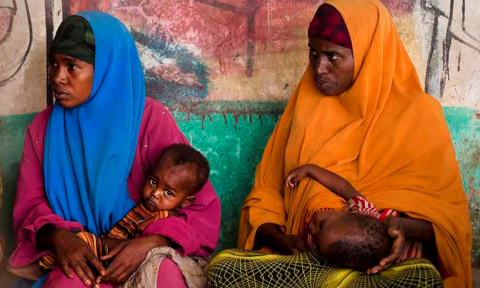The United Nations has warned of impending famine and starvation, which threaten 20 million people across South Sudan, northeastern Nigeria, Somalia, and Yemen. Calling it the largest humanitarian crisis since 1945, the UN stressed the need to avert the repetition of the 2011 famine in the horn of Africa and appealed for massive global support. A number of factors can contribute to famine. Key drivers include:
- Severe conflict, political instability, and poor governance. They can lead to severe hunger by preventing food from reaching people who need it most as in northeastern Nigeria and South Sudan.
- Climate change, drought, and land degradation wreak havoc on a region’s ability to grow and sustain crops, feed livestock, and maintain water systems.
- Higher costs of food—driven by food-price spikes, imbalances in supply and demand, and crop disease—can keep food out of reach from those who need it most.
General
Event - Policy Roundtable on July 12, 2017
Tackling famine in the 21st century
Video highlights: Tackling famine in the 21st century
IFPRI Policy Brief
From famine to food security: Lessons for building resilient food systems
IFPRI Flagship Publication
Global Hunger Index 2015 (Chapter 3) - Armed conflict and the challenge of hunger
Yemen
According to the UN, two-thirds of the population, about 18.8 million people, need assistance. More than 7 million do not know where their next meal will come from. IFPRI studies shed light on food security and conflict in Yemen.
South Sudan
The UN estimates that more than 7.5 million people need aid. Continued fighting displaced some 3.4 million people and more than 1 million children are thought to be acutely malnourished, including 270,000 children who face the risk of death if they don’t receive immediate assistance. IFPRI studies explore the link between hunger, drought, and conflict in South Sudan.
Somalia
According to the UN, more than half of the population — 6.2 million people — in Somalia require humanitarian and protection assistance. Some 2.9 million people are at risk of famine. And hundreds of thousands in the last few months alone have been displaced due to severe droughts. IFPRI has conducted research on hunger, drought and war in Somalia.
Northeastern Nigeria
While no reliable data can be obtained at this point, in northeastern Nigeria – the Boko Haram stronghold in the last three years – people have been displaced, harvests have been lost, and many thousands of children remain malnourished. IFPRI is currently conducting research to find out what is driving chronic child malnutrition in the region.



